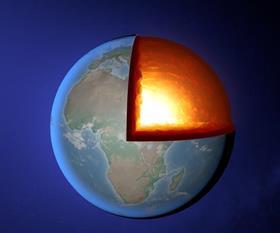Endpoint: Andrew Hunt has the last word

Bill Bryson describes how his attention was grabbed at school by a cut-away diagram of the inside of the Earth. A diagram which he spotted when he first opened an unloved and grimy school science textbook. He recalls thinking, with real wonder: 'How do they know that?'. He goes on to tell of his deep disappointment when he began to read the text and found that it did not answer any of the questions that the diagram stirred in his mind. So, years later he set out to write A short history of nearly everything by badgering scientists to tell him: 'How do you know that?', 'How did you figure it out?' and 'If you don't know, how are you going to find out?'.
The excitement of discovery
I welcome the added strand covering 'how science works' in the new chemistry A-levels because it can remind us of the excitement of chemical discoveries. In our teaching we should certainly be placing more emphasis on 'how we know' and less emphasis on 'what we know'. We need to show our students that chemistry is not just about learning lots of established chemical methods and theories but that it encompasses a range of ingenious techniques for answering interesting questions and solving challenging problems.
The treatment of the Born-Haber cycle at A-level illustrates the way we tend to turn key ideas into routine exercises. The cycle was introduced into courses at this level to show how scientists test their theoretical models. The aim is to find out whether or not the ionic model can account for the observed properties of crystals such as sodium chloride. This is an excellent example of how chemists work, but it loses all its interest if reduced to examination exercises based on drawing Born-Haber cycles and calculating lattice energies. I am glad to see that this topic has been represented in some of the new specifications to highlight the key purpose of the teaching.
Similarly, the explanatory power of mechanistic organic chemistry loses its impact when applied to a limited range of illustrative examples. In some instances, now, just one example of each mechanism. As examiners we then end up giving marks to students who can draw curly arrows accurately, so that they start and stop at exactly the right point. This turns the learning into a ritual when we should be rewarding answers that show that students understand why it is valuable to have models of reaction mechanisms and how chemists have used a range of cunning techniques to investigate bond-breaking and bond-forming processes during chemical changes.
Applications
As well as data and explanations, the Qualifications and Curriculum Authority's (QCA) criteria for 'how science works' cover the applications and implications of science. Several specifications, for example, now include the topic of ozone depletion. This provides a good opportunity to illustrate the value of understanding free radical reactions. Unfortunately the treatment suggested is, generally, so grossly oversimplified that it cannot answer basic questions such as: 'Why is it that ozone depletion is so much more severe over Antarctica?'.
Half-hearted implementation
The implementation of 'how science works' in the new specifications is an improvement but it could have been so much better if QCA had given the awarding bodies time to think through the implications of the new criteria and incorporate them fully into the topics of the new courses. Some specifications merely pay lip service to the ideas, while the good thinking in others is largely banished to appendices. There is little sign in the specimen assessment material that examiners have yet changed their expectations of what students should understand and be able to do.
Loss of investigations
It also seems odd that, apart from the Salters' course, the awarding bodies have largely cut out the expectation that students will carry out their own investigations. The many queries from students that have been sent in recent years to the Nuffield website Re:act show how challenging they find it when they have to choose a question to investigate and then plan a way to answer their question. The experience brings them face to face with the demands and methods of investigative science. I hope that teachers who value this important tradition in science education at this level will continue to offer the opportunity to their students by taking advantage of the new extended project qualification.
And the final analysis?
So, as the curate said of his egg, parts of the new specifications are excellent - but they could have been so much better.
Andrew Hunt is the author of A-level chemistry textbooks.






No comments yet